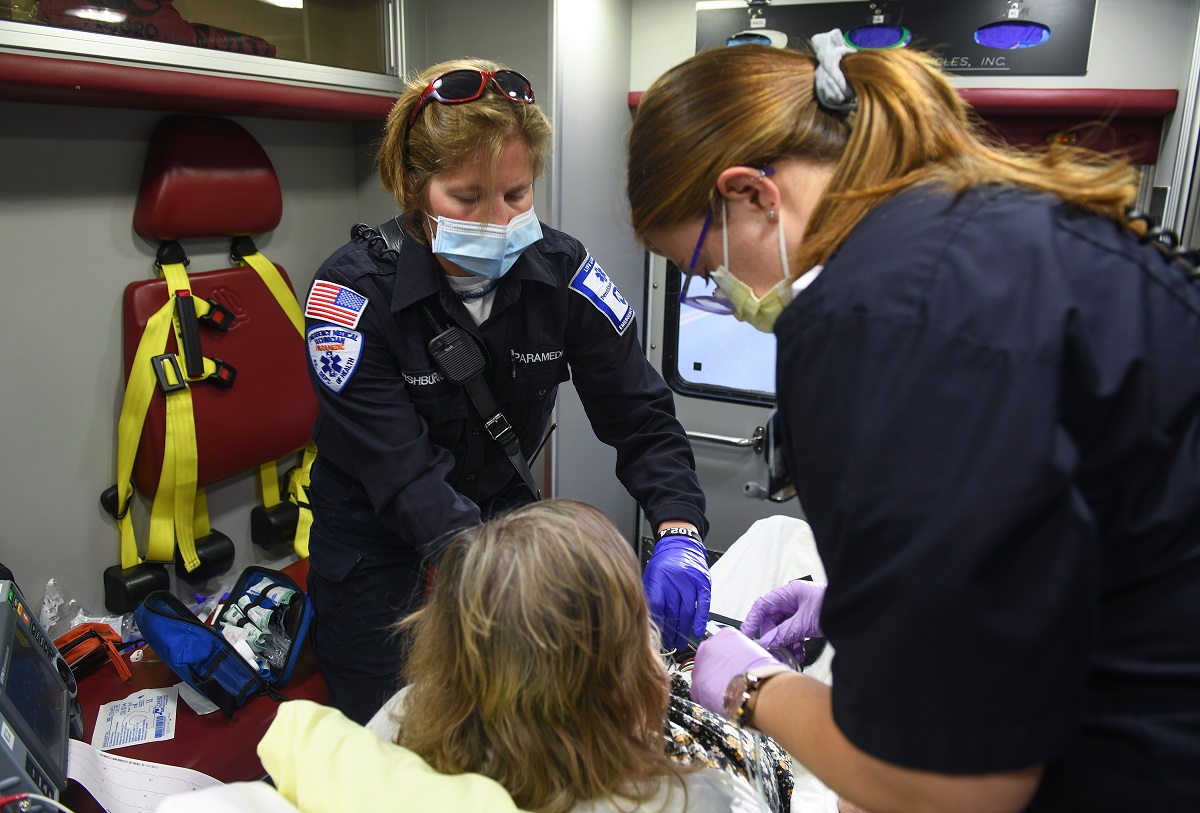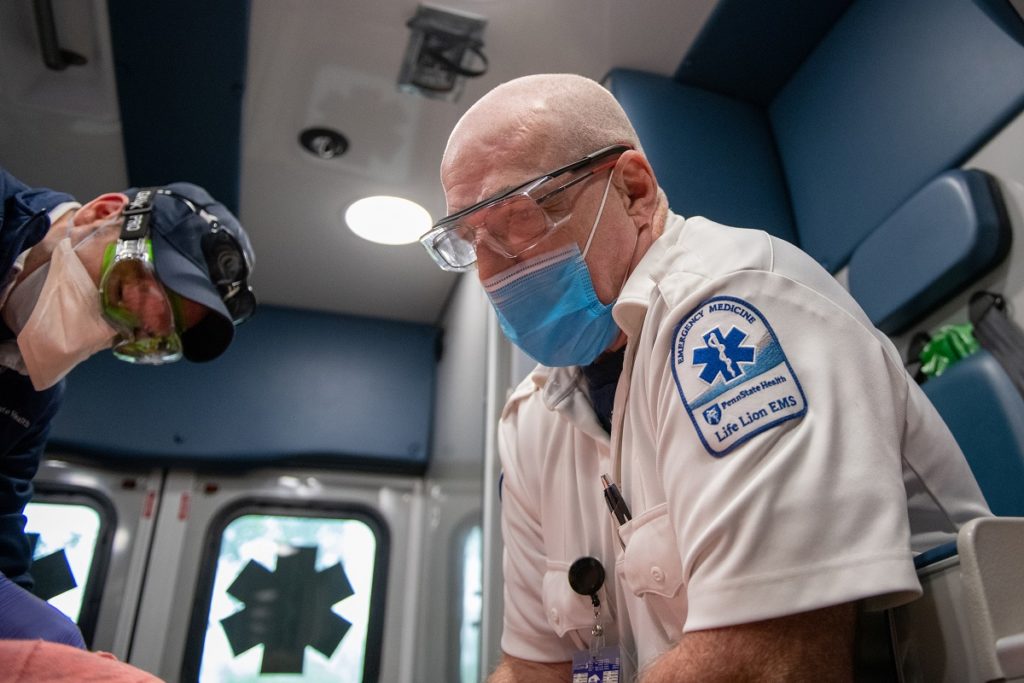Behind the Scenes on the Front Lines: Emergency Medical Services

When minutes matter most, the Life Lion emergency medical services (EMS) team swings into action, combining expertise with fearless dedication. That was apparent perhaps more than ever during the past year as they were called to the homes of many COVID-19 patients to provide testing and care in unknown circumstances. They think on their feet, have each other’s back and take every patient to heart, caring for our community in heroic ways.
What are the ways EMS has contributed during COVID that most Penn State Health employees aren’t aware of?
“Life Lion EMS started a COVID team last year consisting of paramedics who deployed to nursing homes, sometimes 2 1/2 to three hours away, and remained there until every nursing home resident and every staff member was tested – in addition to their regular shift work. Collectively, Berks County Life Lion distributed countless personal protective equipment (PPE) and disinfectant materials to outlying fire departments as well as EMS stations.” ~ Doug Young, paramedic, Life Lion, Berks Region
“In the hospital, all the preparations are in order to care for a COVID patient. We walk into a back pain call, and it ends up being a COVID call. Everybody in the house is coughing. The vaccine has made these calls a lot more comfortable for us.” ~ Sarah Fishburne, paramedic, Life Lion, West Shore
What has been the biggest challenge your department faced during COVID?
“Keeping first- response team members safe while responding to emergency calls in the depths of this devastating disease.… My supervisors and manager have worked tirelessly to educate each of us on how to stay diligent in protecting ourselves and supplying all the PPE we would need.” ~ Doug Young, Life Lion, Berks Region
“We were all overwhelmed, especially in December when we had a spike in COVID cases. As a fun morale booster, I hid 50 numbered ducks around the station randomly. People would find a duck and have a laugh.”
~ Sarah Fishburne, Life Lion, West Shore
What qualities best describe your co-workers?
“Committed, helpful, passionate and gregarious. Whether providing assistance on a 911 call or washing trucks together at the station, my co-workers are passionate about EMS and committed to helping each other and the community.” ~ Kelli Paprocki, paramedic, Life Lion, Hershey
What about your department are you most proud of?
“Life Lion Berks is a well-oiled machine. There have been many instances where issues have occurred that ordinarily would seem catastrophic, but with the unrelenting determination and cooperation between management and crews, the issues become inconsequential.” ~ Doug Young, Life Lion, Berks Region
What was the biggest thing that changed for you during the pandemic?
“Pre-pandemic, responding to 911 calls for various emergencies felt routine, but when I became the patient in the ambulance/hospital with COVID, I realized what patients are going through when they call 911… I gained a new perspective of patient care from the other side of the health care system. What impacted me the most was the kindness I received from my physicians and nurses and strangers who treated me with compassion when I was isolated from friends and family. I was reminded that these qualities are equally important as medicine’s clinical practice and are an essential part of treatment.” ~ Kelli Paprocki, Life Lion, Hershey
“The whole world stopped, but we kept going. I got to go to work every day and hang out with people I like. Sure, it was stressful, but I had a lot of energy – well, nervous energy!” ~ Sarah Fishburne, Life Lion, West Shore
What is one fact about your department that you wish everyone at Penn State Health knew?
“Driving is the easy part of the profession. In fact, emergency medical technicians (EMTs) and paramedics are educated to perform basic and advanced life support, respectively, and both EMTs and paramedics practice medicine under state protocols and provide medical care, monitoring and stabilization for people coming to the hospital, as well as people being discharged. We’re trained to perform life-sustaining treatments and manage adult and pediatric cardiac, respiratory, circulatory, obstetric and neurologic emergencies.” ~ Kelli Paprocki, Life Lion, Hershey
“We have a community paramedic program that follows up with discharged patients in an effort to provide ongoing medical care. We are not just an ambulance ride to the hospital.” ~ Doug Young, Life Lion, Berks Region

Paramedic Doug Young, right, of Life Lion, Berks Region, attends to a 78-year-old woman who fell and possibly fractured her hip. Samuel Walter, EMT, assists.
If you're having trouble accessing this content, or would like it in another format, please email Penn State Health Marketing & Communications.
